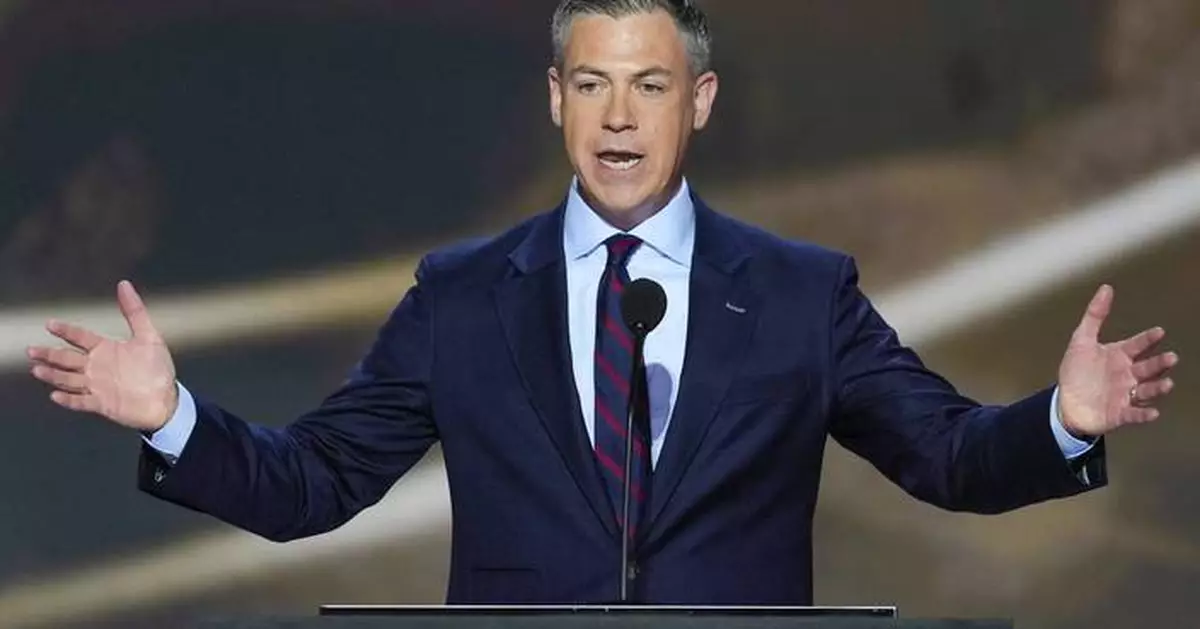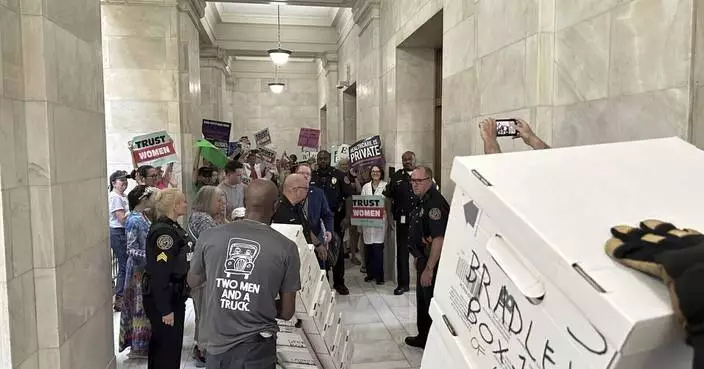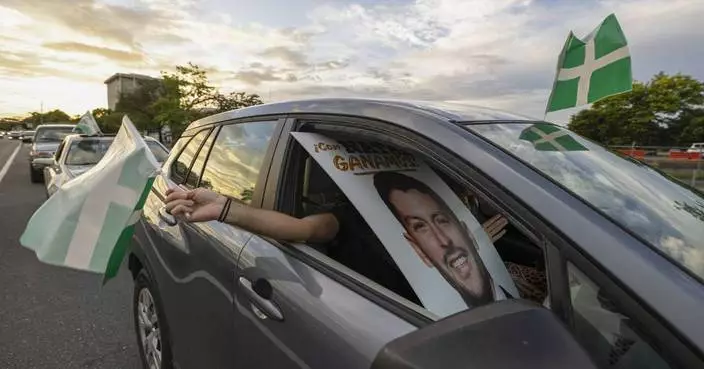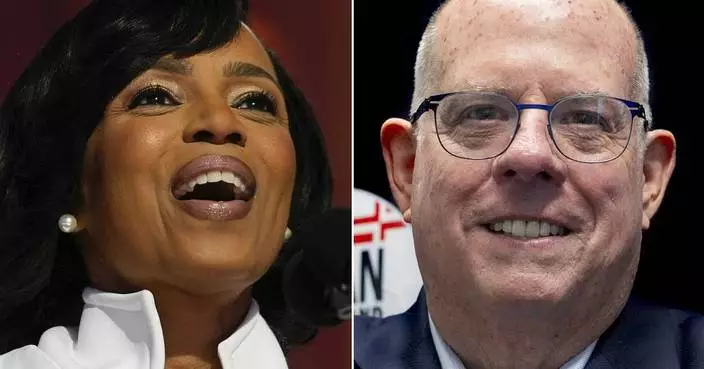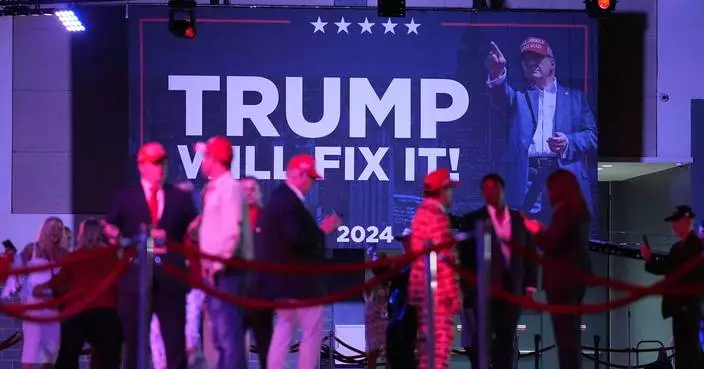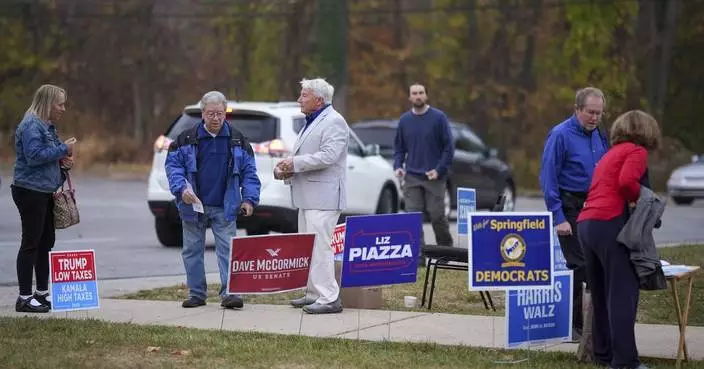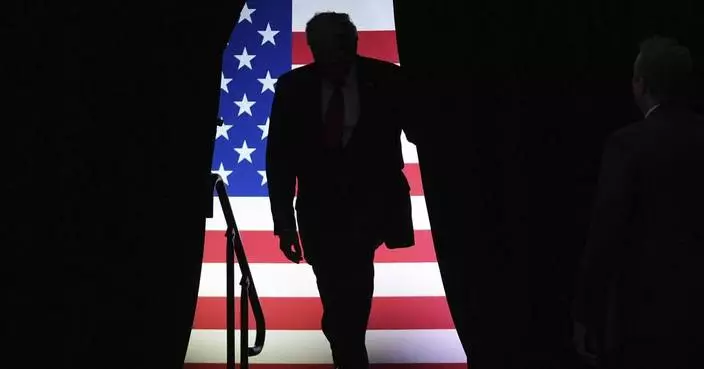INDIANAPOLIS (AP) — Republican Jim Banks, an outspoken supporter of former President Donald Trump, won Indiana’s open U.S. Senate seat on Tuesday, defeating political newcomer and Democrat Valerie McCray.
Banks, 45, was strongly favored to win the Senate race in the Hoosier state, which Trump won by large margins in 2016 and 2020.
Banks said in his victory statement that he was grateful to his family and voters across the state for their support and was “honored to have the opportunity to fight for the things that matter most to Hoosiers.”
Banks said he entered the Senate race “to champion working Hoosier families and put Indiana first, and that’s what I plan to do on day one in the United States Senate.”
“Only in America can a kid like me, who grew up in a trailer park in Columbia City and was the first in my family to go to college, go on to become a United States Senator," he added.
Banks is a combative defender of Trump who voted against certifying Joe Biden’s presidential election victory after a mob of Trump supporters stormed the U.S. Capitol on Jan. 6, 2021. He had no challenger in the May primary after a series of legal battles ultimately removed egg farmer John Rust from the Republican ballot.
The sitting congressman represents northeastern Indiana’s 3rd District. He passed on another House term to run for the Senate seat being vacated by fellow Republican Mike Braun who won Indiana's governor’s office in Tuesday's elections. Current Republican Gov. Eric Holcomb is term-limited.
McCray, a clinical psychologist from Indianapolis, is a political newcomer whose name is appearing on a statewide ballot for the first time. In 2022, she sought to challenge Republican U.S. Sen. Todd Young in his reelection bid but didn’t get enough signatures to secure a spot on the Democratic primary ballot. The Senate seat Young holds will next be up for election in 2028.
In this year’s May Democratic primary, McCray, 65, defeated trade association executive Marc Carmichael, a former state representative, to become the first Black woman chosen as an Indiana mainstream party’s nominee for U.S. Senate.
McCray and Libertarian candidate Andy Horning met for the only Senate debate on Oct. 29, but Banks did not attend.
McCray said in a statement Tuesday night conceding her loss to Banks that she was "proud of the movement we built and the conversations we started about the issues that matter most to Hoosiers.”
“Jim Banks’ victory is a reminder that our work is far from over. As a MAGA Republican, he does not share the values of most Hoosiers, who believe in equality, justice, and opportunity for all," she added. "I will continue to advocate for policies that benefit working-class families, protect women’s rights, and promote affordable healthcare.”
In the leadup to Election Day, Banks and McCray largely parroted their national parties’ talking points, with Banks emphasizing border security and immigration and McCray healthcare and abortion rights, said Michael Wolf, a professor of political science and department chairman at Purdue-Fort Wayne.
Wolf said Democrats were energized by McCray’s candidacy, but her loss adds to Democrats’ more than decade-long losing streak in Indiana statewide elections. The last time Democrats won statewide races was in 2012, when Glenda Ritz won the state schools superintendent post and Democrat Joe Donnelly won a U.S. Senate seat.
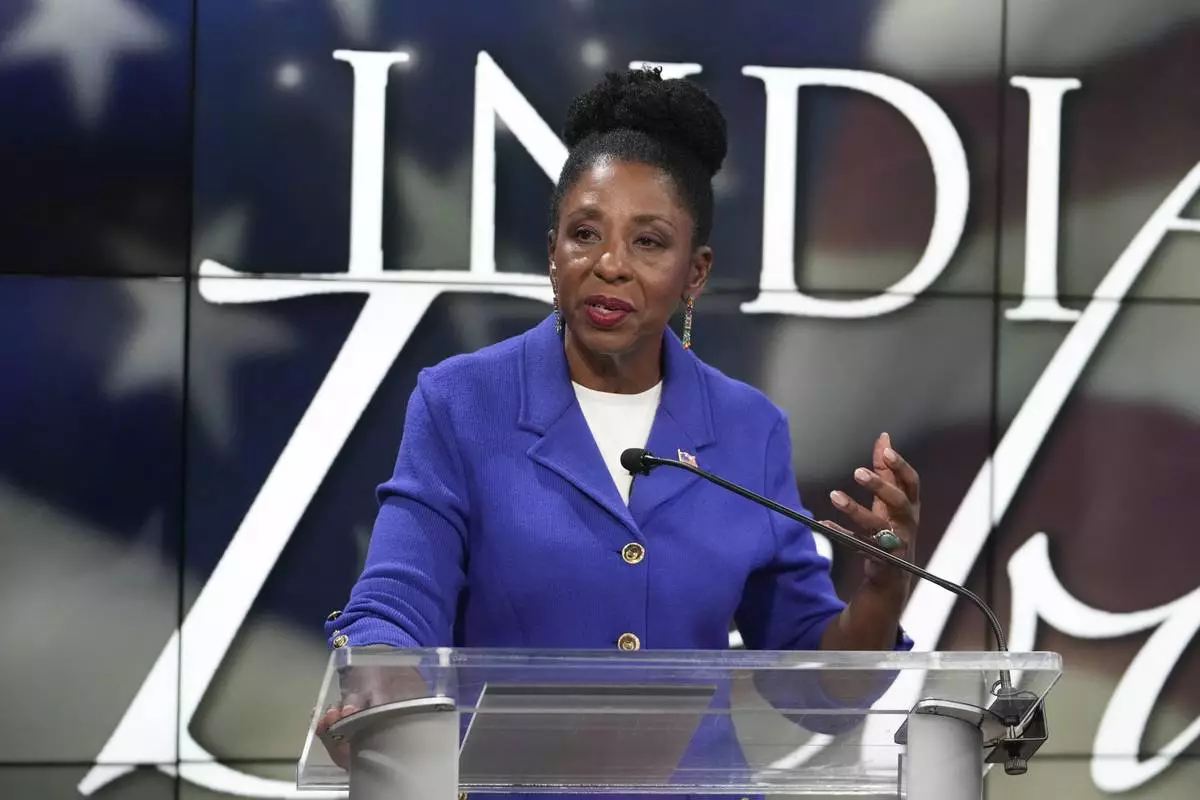
Democratic senatorial candidate Dr. Valerie McCray speaks during a debate hosted by the Indiana Debate Commission at WISH, Tuesday, Oct. 29, 2024, in Indianapolis. (AP Photo/Darron Cummings, Pool)
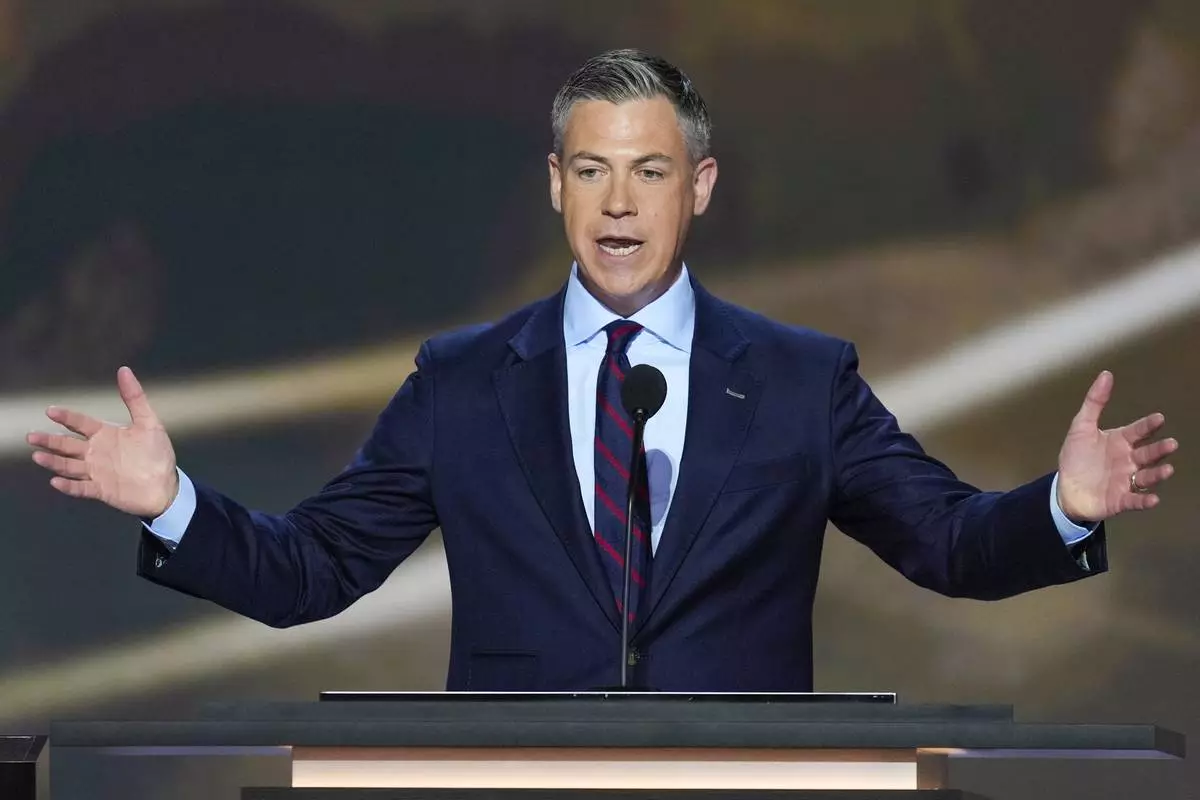
FILE - Rep. Jim Banks, R-Ind., speaking during the Republican National Convention, July 16, 2024, in Milwaukee. (AP Photo/J. Scott Applewhite, File)
WASHINGTON (AP) — The Associated Press declared winners Tuesday in some states where polls had just closed, and in some cases before any votes had been released.
How is that possible?
While hotly contested races that take hours or days to count may attract the most attention, the AP for decades has called landslide or uncontested races at poll closing time.
That's what happened Tuesday, when AP declared former President Donald Trump the winner in Montana and Utah as polls closed in those states at 10 p.m. ET. The AP also declared winners as poll closed in earlier states, as well as in some races for U.S. Senate and governor.
The AP considers multiple factors and analyzes available data before determining whether a winner can be declared when polls close in a given state. But the AP will never declare the outcome in a competitive contest before enough votes are counted to make the winner clear.
Many of the races called just as the polls close are uncontested elections where only one candidate appears on the ballot and is therefore the only possible winner of the race. Voters in some parts of the country live in multimember districts for offices such as state legislature, where more than one candidate is elected in a district. In those districts, an uncontested race is one where the number of candidates on the ballot is equal to or less than the number of seats available in that district.
In the 2024 general election, the AP is declaring winners in nearly 2,000 uncontested races, compared with about 4,500 contested races.
Sometimes it’s possible to declare winners at poll closing time in noncompetitive races with multiple candidates in areas where one political party has an established history of lopsided victories.
In these cases, the AP analyzes multiple sources of available data to confirm the outcome. That includes the results of AP VoteCast, a comprehensive survey of both voters and nonvoters that determines who voted, how they voted and why.
The AP will not call a race when polls close if AP VoteCast’s results indicate a deviation from the state’s long-standing political trends and voting history.
AP VoteCast results will be available for all 50 states, though only a relatively small number of the least competitive races will be considered as potential poll-close calls. There is no AP VoteCast survey in the District of Columbia; therefore, none of the contests there will be called when polls close even though the nation’s capital has a long history of overwhelming victories for Democratic candidates.
For example, the AP’s poll-close calls in the 2020 presidential election included Wyoming, a state that last voted for a Democrat in 1968 and that Donald Trump won over Joe Biden by 44 points; and Massachusetts, which last voted for a Republican in 1984 and that Biden won by 34 points over Trump.
A handful of states and districts have multiple poll closing times because they are in more than one time zone. In these cases, the AP will never declare a winner before the final poll closing time in that state or district. Florida, Texas and some others begin to release vote results from most of the state shortly after polls close in the earlier time zone. Votes that are already counted from areas in the earlier time zones will also be considered in determining whether a winner can be declared at the moment when the last polls close.
Other election data the AP takes into account include an area’s voting history from recent elections, voter registration statistics and pre-Election Day polling.
When the above data points confirm the expected result in a state where either major party has a history of dominating elections, the AP may call the race as soon as voting ends.
Learn more about how and why the AP declares winners in U.S. elections at Explaining Election 2024, a series from The Associated Press aimed at helping make sense of the American democracy. The AP receives support from several private foundations to enhance its explanatory coverage of elections and democracy. See more about AP’s democracy initiative here. The AP is solely responsible for all content.
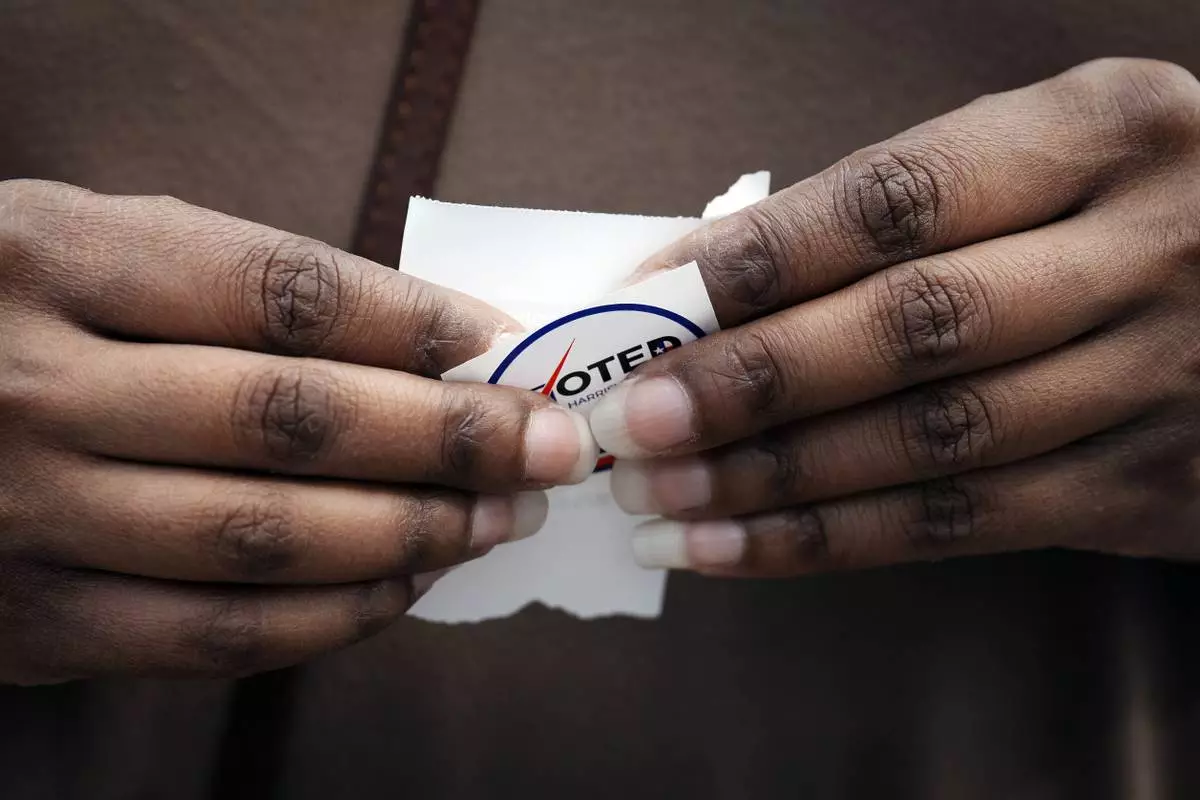
A voter holds a "I Voted" sticker after casting their vote for General Election on Election Day Tuesday, Nov. 5, 2024 at Sunnyside Health and Multi-Service Center in Houston. (Yi-Chin Lee/Houston Chronicle via AP)
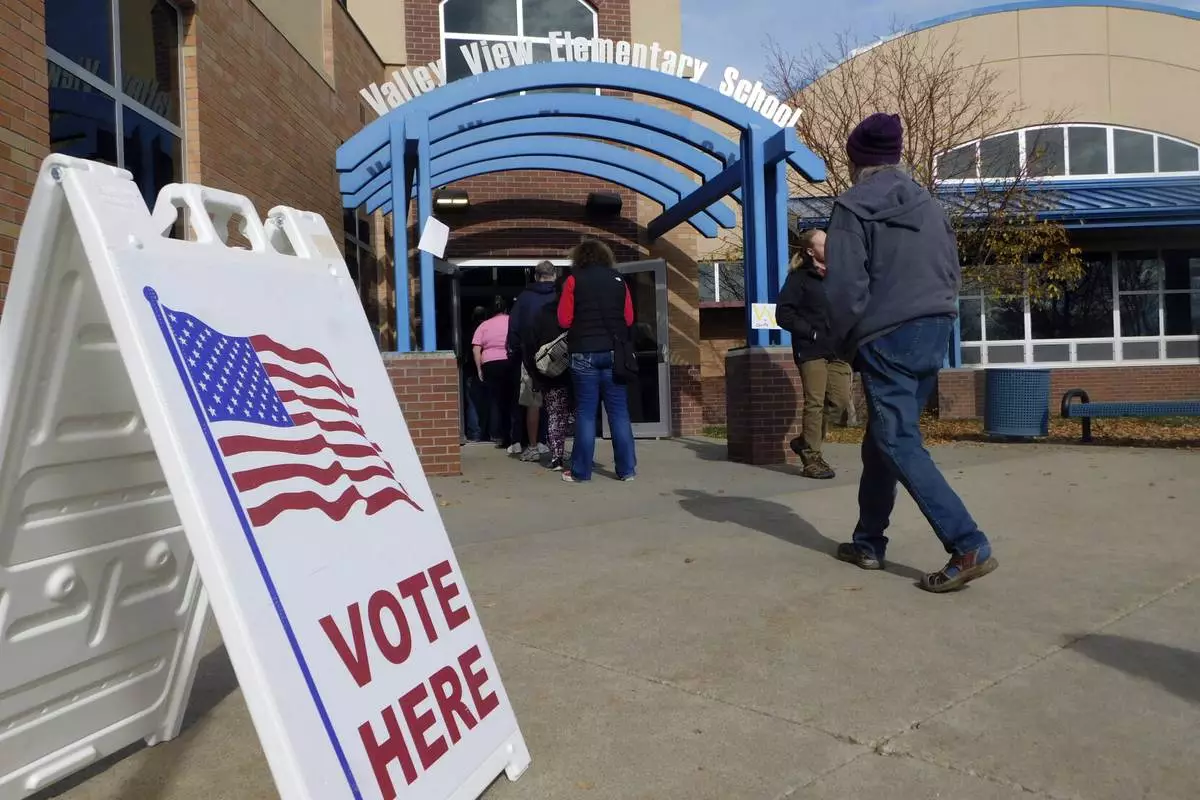
Pennigton County voters head to the polls at Valley View Elementary School Gym on Election Day, Tuesday, Nov. 5, 2024, in Rapid City, S.D. (Madison Willis/Rapid City Journal via AP)
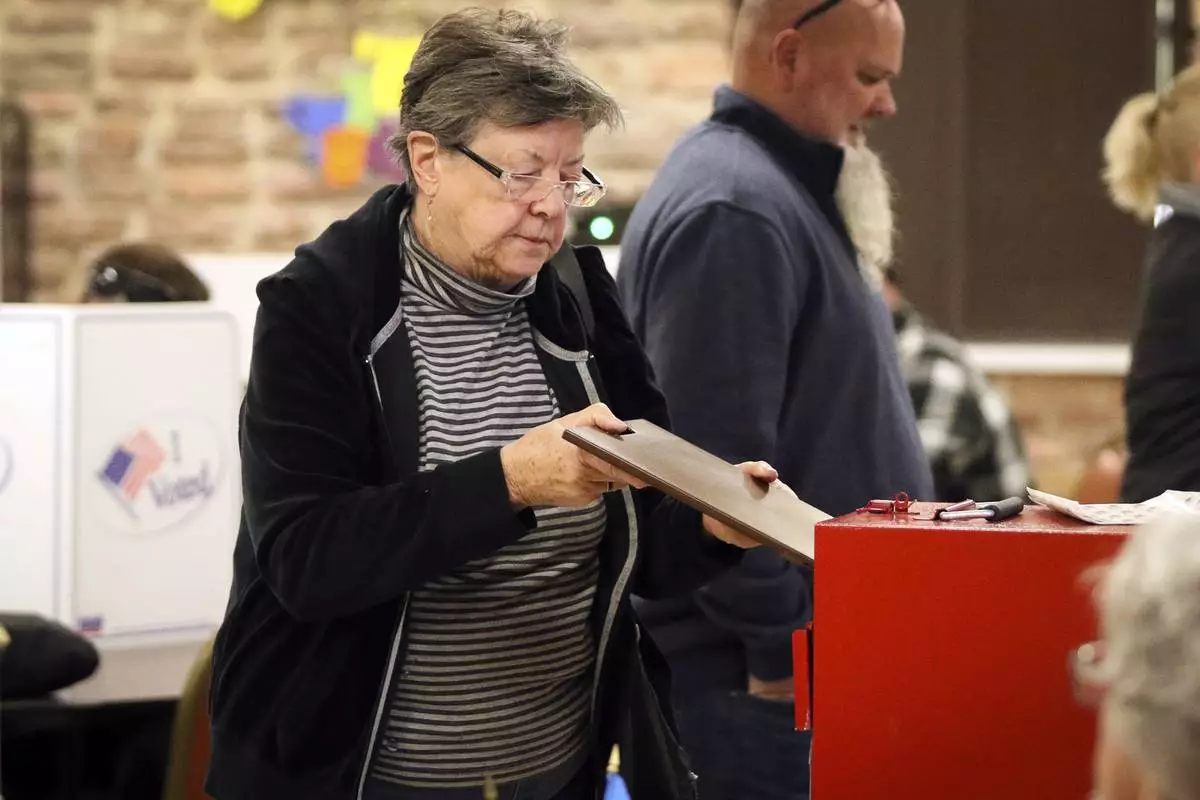
A woman casts her ballot at Canyon Lake Activity Center on Election Day, Tuesday, Nov. 5, 2024, in Rapid City, S.D. (Darsha Dodge/Rapid City Journal via AP)




